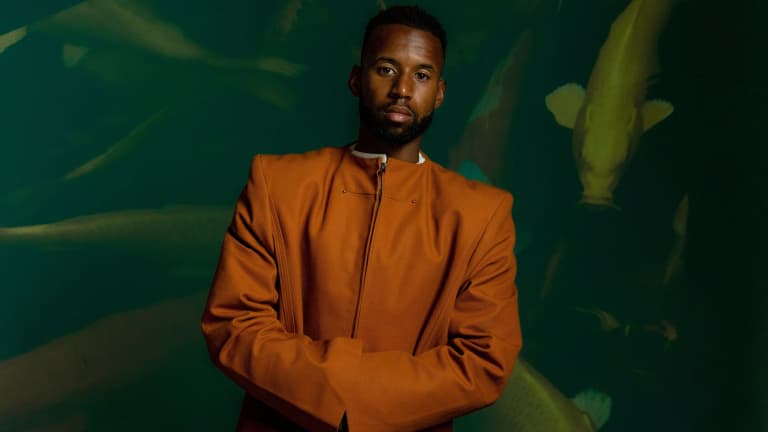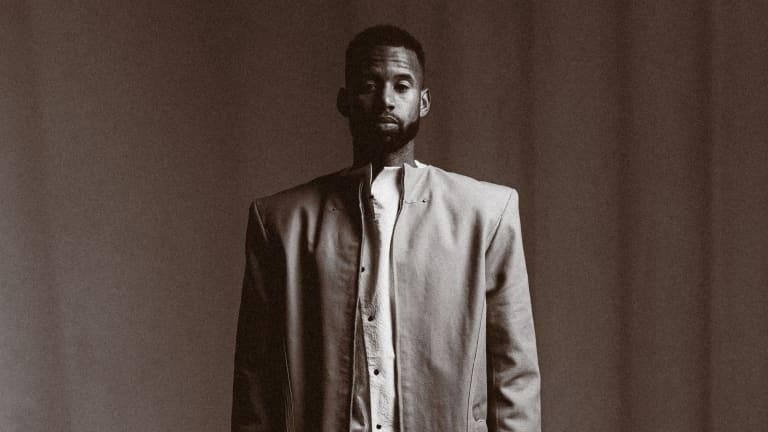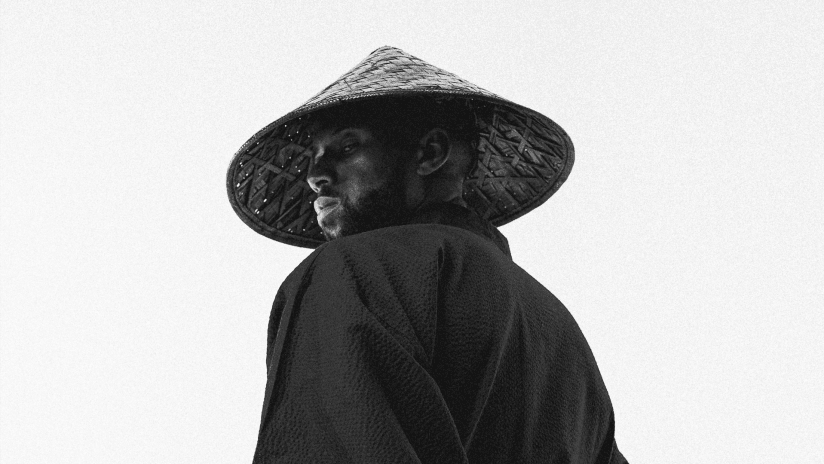All photos herein were photographed and produced by Devin L'Amoreaux.
Kellyn Acosta is well-known for his ability in the midfield with LAFC and the US men's national team.
However, what's less known about the 26-year-old is his Japanese roots, which stem from his father. It is a lineage that could have allowed the USMNT midfielder to represent the Samurai Blue at the international level.
"My Japanese background comes from my dad's side of the family. My dad is actually half Japanese," Acosta shared during an interview with MLSsoccer.com. "He was born in Japan. His first language is Japanese. He lived there until he was about 10 years old and then moved to the states. He was part of the ESL. He was a foreigner coming into the country and so for me obviously having that background is a little bit different because I'm American through and through, but I still have ties to Japan."
Acosta previously visited the Japanese American National Museum with his father and grandmother to learn more about his culture and the history of Japanese people in the United States.
The experience was rewarding and emotional as Acosta learned about some of his family's experiences for the first time.
"The museum was something really special, especially getting to share that with my dad and my grandma," he said. "We had three generations there. Seeing my dad remember things from his childhood, that was 40 years ago and he hasn't been back since. Seeing him remember the classrooms and the sports ... and even my grandma. She hasn't been back to Japan in 50 years and that really brought tears to her eyes and made her feel closer to home."
"I think being in the states, the closest she gets to Japan is going to the Japanese market or talking on the phone or watching TV," he added. "Having and sharing those moments with them was really special, and part of it was super powerful because I learned a lot. Learning about the internment camps during WWII was also something new for me and was really sad to see. I had no idea about that, so learning more about the struggles that the Japanese people have had to endure here in the states was really sad but obviously really powerful to learn more about."

An understanding of other cultures
Major League Soccer is one of the most diverse leagues in the world, ranking first among the top soccer leagues with 82 countries being represented.
Acosta's multiple backgrounds have given him a unique experience that has helped him learn and accept other cultures throughout his life and is something that has manifested onto the pitch and into the locker room. It's a skill that is very much needed in the world right now.
"What makes the league [MLS] so special is that each of us come from different backgrounds and that's what makes us, 'us'," he said. "Having my unique background helps myself and others grow and learn to accept others that come from different backgrounds and to just learn and be educated.
"I'm African-American, I have Japanese roots, I even have some Hispanic roots in my extended family. So I'm a special case where I can relate to all groups of people. But I think when we all come together and unite around our diversity, it's special and what makes us unique as a league and a team."

"I’m representing a lot more than just my country"
Acosta's Japanese heritage would make him the first Japanese-American player to play in a FIFA World Cup for the USMNT if he makes the final roster that heads to Qatar.
While this potential accomplishment came as a surprise to Acosta, it is a powerful moment that would not only make his family proud, but the communities he is representing.
"It wasn’t something I was familiar with until a few weeks ago when I was in Little Tokyo when someone mentioned that to me," Acosta said. "It's a proud moment and I understand I’m representing a lot more than just my country and the last name on the back of my jersey. I’m representing Black Americans, I’m representing Asian Americans and that’s a special thing.
"It's one of those things where for me, using my story, I’m sure there are a lot of others like me. And I want people to understand that it's important to embrace your culture, celebrate, own it, and I hope people can use my story to build up the next generation."
That simple interaction in Little Tokyo a few weeks ago served as another reason why Acosta believes it is important to speak up and stand up for the Asian American and Pacific Islander culture in this country, with the belief it will not only help him grow and the culture, but also better the entire nation.
"Being Asian American is part of my identity and it's really important to embrace that because it's something special and for me to continue to learn and be involved more in the culture by expressing my heritage is huge," the LAFC midfielder said. "It's important to educate ourselves and those around us. It's important to understand that we can’t neglect that side of ourselves and our culture. We need to build a more inviting community. I always think we can learn a thing or two from other cultures and bring that into our own culture.
"The US is a melting pot in terms of culture and we can really learn and grow from one another and we can build a better community."

Continuing to build awareness
Acosta is going to continue to share and use his story to influence younger generations, but he is also challenging MLS to continue to grow their initiatives that take place during Asian American and Pacific Islander Heritage Month and beyond, especially considering the rhetoric of division over the last few years.
"I think it’s important to push for more opportunities within the Asian communities around the states," he said. "We need to tap in and make more people aware of these communities even within Los Angles. As a league, we should bring more awareness to these communities around the US.
"In my case, it's really important to embrace this side of me to bring awareness and excitement and representation. Despite the fact that I might look different from most Asian people, I am Asian, it's in my blood, it's my background, it's my culture, it's my heritage and I’m proud to be Asian and I want others to feel the same way."
Soccer is the world's game and in a time of dire need for togetherness, sports can be used as more than just a competition, but as a way to bring people together.
"Sport unites people and I think it’s huge for us to use the beautiful game to unite people of all cultures and all communities to come together and enjoy as one," Acosta remarked.
Also, check out Acosta's feature in The Player’s Tribune here.











